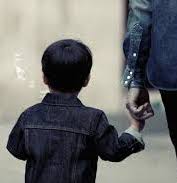Child Separation Is a Medical Emergency
 by Danielle Ofri
by Danielle Ofri
Slate Magazine
As adults, childhood can seem like an evanescent flash in the pan, a brief launching pad that served only to make us who we are for the rest of our lives. But it’s really the opposite—childhood is planet-size foundation upon which the sapling of adult life is created. And from a medical perspective, those few childhood years exert an outsize influence on both physical and mental health.
As an internist who cares for adults over decades of their lives, I see the exponential effects of childhood experience on a daily basis. Which is why my blood pressure has been skyrocketing as I’ve heard the stories of thousands of children being torn from their parents at the U.S. border. Besides being horrified as a citizen and as a parent over what is clearly an immoral act, I worry about the very real medical and psychological ramifications.
We know that early psychological trauma is related to future mental i
llness, substance abuse, anti-social behavior, and poor physical health. Acute trauma throws the body into fight-or-flight mode, flooding the body with adrenalin, cortisol, and other hormones. While this state of affairs would be useful when fending off a mastodon in an urgent situation, it is maladaptive in an ongoing state and has potent effects on the developing brain. There is evidence that childhood trauma affects neural development and gene functioning.
Children—especially young children—rely on their parents to create stability in their lives, enabling them to bound forward with emotional and intellectual development. When that framework is shattered, they are unable to negotiate the world in a safe way. They can have trouble with trust, relationships, decision-making, and impulse control, among other things. Separation from parents at an early age is known to be an especially devastating trauma.
The list of effects of early childhood trauma is so expansive that it wasn’t surprising to see the president of the American Academy of Pediatrics refer to border agents’ removal of children from parents as “government-sanctioned child abuse.”
 I see daily the physical and psychological effects of early childhood trauma. Well into older age, patients retain the scars and setbacks from those early experiences. These injuries are rarely fully healed. Octogenarian Holocaust survivors still live with the pain of being separated from their parents.
I see daily the physical and psychological effects of early childhood trauma. Well into older age, patients retain the scars and setbacks from those early experiences. These injuries are rarely fully healed. Octogenarian Holocaust survivors still live with the pain of being separated from their parents.
Damage from childhood trauma can be profound and long-lasting. It can even be passed on to the next generation. Treatment is resource-intensive, expensive, arduous, and often only modestly effective. If there were ever a situation in which an ounce of prevention could yield a metric ton of benefit, it is in the area of childhood trauma. From a medical perspective, the removal of children from parents could be creating an epidemic of social, physical, and psychological problems that will haunt us for years.
But even with all of that acknowledged, it is from the human perspective that this is most shocking. We’ve all experienced the existential screams of a young child who has even momentarily misplaced her parents in a supermarket. To think that our government has identified this as useful immigration policy simply staggers the mind.
Two-thirds of Americans recoil at the policy of separating children from their parents. You can be sure that if pollsters asked about taking away your own children, that number would be 100 percent. And whether it’s your own children or someone else’s children, these are still children. As adults, we have a duty to protect them.
